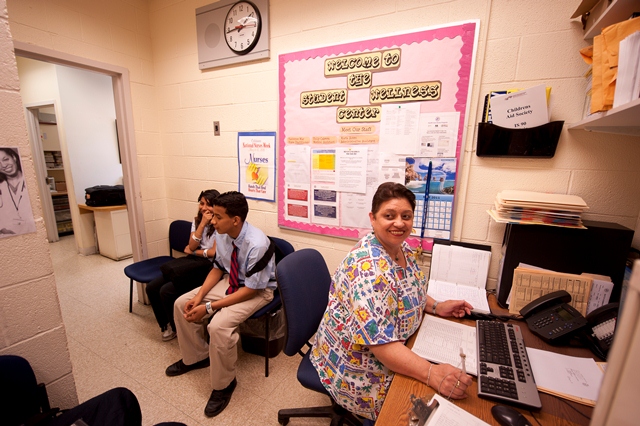Mental health is an important aspect of the overall well-being of students and their families. Unfortunately, mental health issues can be difficult to identify and address, especially when it comes to children and adolescents. School-based health centers (SBHCs) have become increasingly popular in recent years as a way to provide comprehensive health care services to students, including mental health care. By providing access to mental health services in schools, SBHCs can help identify and address mental health concerns, as well as provide guidance and support for students and their families. This article will discuss the importance of SBHCs and their impact on mental health both inside and outside of school, as well as how effective two-way communication between students, parents, and health care providers can help foster a healthy school community. In fact, “research shows that adolescents are at least 10 times more likely to come to a SBHC for behavioral health services than to visit a community health provider.“
School-Based Health Centers
What are School-Based Health Centers?
School-based health centers (SBHCs) are clinics located on or near school grounds that provide primary and preventive health care services to students. SBHCs are staffed by health care professionals such as physicians, nurses, and mental health professionals who are trained to provide comprehensive health care services to students, including preventive care, diagnosis and treatment of illnesses and injuries, mental health counseling, and health education. SBHCs can also provide referrals to outside health care providers if necessary.
The Benefits of School-Based Health Centers on Mental Health
The presence of SBHCs in schools can have a positive impact on the overall well-being of students and their families. SBHCs can provide access to quality health care services that may otherwise be inaccessible or unaffordable for some students and families. SBHCs can also help identify and address mental health issues amongst students, which can have a positive impact on academic performance and attendance. In addition, SBHCs can help build trust between schools and communities, which can help foster a healthy school environment.
The Impact of School-Based Health Centers on Mental Health
SBHCs can play an important role in addressing mental health issues amongst students. By providing access to mental health services in schools, SBHCs can help identify and address mental health concerns before they become more serious. Mental health professionals at SBHCs can provide counseling and support to students in order to help them manage stress, anxiety, and other mental health issues. In addition, SBHCs can provide guidance and support to families in order to help them better understand and address mental health issues amongst their children.
The Role of Bi-lateral Communication in Mental Health
Effective two-way communication between students, parents, and health care providers can be essential in fostering a healthy school environment. It is important for parents to be aware of their children’s mental health, as well as any changes in their behavior or attitude. In addition, it is important for students to feel comfortable discussing their mental health with their parents and health care providers. By fostering an open and honest dialogue between students, parents, and health care providers, it can help create an environment of trust and understanding, which can help address mental health issues before they become more serious.
Conclusion
School-based health centers can play an important role in addressing mental health issues amongst students. By providing access to mental health services in schools, SBHCs can help identify and address mental health concerns before they become more serious. In addition, effective two-way communication between students, parents, and health care providers can help foster a healthy school environment. By creating an environment of trust and understanding, it can help address mental health issues before they become more serious and ultimately create a healthier school community.


